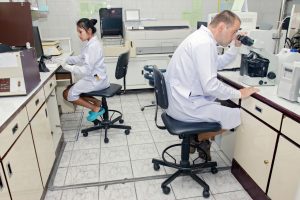It’s confusing. Butter is bad. Moderate alcohol consumption of 2 drinks daily for men and 1 for women is healthy. Coffee increases your risk of a heart attack. Eggs elevate LDL  (the bad) cholesterol; replace them with sugary cereal and donuts for breakfast. Low-fat diets are the best for losing weight. Saturated fats, especially those found in meat, must be minimized or avoided. Vitamin supplements are unnecessary.
(the bad) cholesterol; replace them with sugary cereal and donuts for breakfast. Low-fat diets are the best for losing weight. Saturated fats, especially those found in meat, must be minimized or avoided. Vitamin supplements are unnecessary.
Every single one of those recommendations from the medical “authorities” and self-anointed food gurus (aka “Foodies”) has been challenged and disputed. Some have been proven wrong. Yet the barrage of medical research and studies continues unabated and also continues to wreak havoc on the health of the average person.
It’s enough to drive anyone out of their minds. Just when one approach has been adapted, we are abruptly ordered to do the opposite. It’s maddening, to put it mildly.
How is this possible?
How could well-funded, educated scientists and medical professionals keep swinging and missing? One possible explanation is that the research methodology is fundamentally flawed. Let’s take a look at why this is and discover a few guidelines to help navigate this health minefield.
In a 2005 paper, Dr. John P. A. Ioannidis penned an article: “Why Most Published Research Findings Are False.” He stated that “The greater the financial and other  interests and prejudices in a scientific field, the less likely the research findings are to be true,” and “The hotter a scientific field (with more scientific teams involved), the less likely the research findings are to be true.”
interests and prejudices in a scientific field, the less likely the research findings are to be true,” and “The hotter a scientific field (with more scientific teams involved), the less likely the research findings are to be true.”
To develop a healthy degree of skepticism, here are a few things to remember when a new study comes out.
• Follow the Money. Pharmaceuticals, supplements, and food are all billion-dollar industries. There is an ancient cliché: “It is hard to make someone understand something when their continued financial well-being depends on their not understanding it,” and that’s often the case with health research. Someone is paying for those doctor-approved advertisements for the big drug companies (aka “Big Pharma”), the athletes who swear by a particular supplement, or a smiling, happy consumer of a food that produces effortless weight-loss.
• Bias: See above. When a natural, safe, and effective cure or treatment emerges that could threaten Big Pharma’s bottom line, it will be met with “more research is needed” and “it’s not regulated.” At times this may be true. But all too often, there is a lack of objectivity from well-financed research studies with a bias against holistic approaches.
• Animal research. Exciting conclusions have been announced from animal studies. While promising and potentially game-changing for humans, people are not animals, and these breakthroughs should be interpreted with that caveat.
• Correlation is Not Causation. If an “X” event occurs, it causes the development of “Y,” a human condition. Maybe, but maybe not. In today’s complex environment, there are countless possible explanations for just about anything, and we need to keep that in mind by demanding hard-core correlations.
• Poor Recall. A significant problem with observational-only studies is that when study participants are asked about their eating patterns, they often get them wrong. This is  understandable; most of us have trouble remembering what we had for lunch a few days ago. Even those rare souls who keep a written journal of their eating may forget or exaggerate their food.
understandable; most of us have trouble remembering what we had for lunch a few days ago. Even those rare souls who keep a written journal of their eating may forget or exaggerate their food.
• Placebo Issues. The “Gold Standard” of scientific research is the “double-blind placebo-controlled trial” in which neither the researchers nor the subjects know who’s getting the active treatment vs. the placebo. But who chooses the placebo? Researchers sometimes choose a “placebo” that may distort a study’s conclusions. Improper conclusions have been reached after using a different placebo than what was reported. Unbelievable, but true!
• The Study Size: A study of 6 subjects produced incredible results! Whoopee! Let’s come down to reality. Any new breakthrough will need more extensive trials with significant numbers of people to achieve statistical significance to elevate the result above the status of statistically inconsequential anecdotes. That seldom happens since gigantic trials are expensive and usually paid for by Big Pharma, which can pump the 100s of millions of dollars required to prove their drugs work; additionally, why sponsor costly research on non-patentable natural substances that other companies can easily copy?
• Fraud. This is sickening and criminal since fraud in health studies is playing with people’s lives. But it happens all too often. A recent example is the Lancet, and the New England Journal of Medicine were fooled into publishing inaccurate research “proving” hydroxychloroquine for COVID-19 was worthless and even harmful.
• Poor Study Quality. Where was the study done? In a modern nation with rigid scientific standards, or overseas in a small, developing country that might be rife with corruption? Who performed the research? Where was the study published? Was it observational only? Most importantly, who paid for the study? These are just some of the questions that need to be asked and answered when evaluating the quality of research.
• The health of the study participants. This is sometimes called the Lazarus Effect and is often used to prove the uselessness of nutritional supplements. Lazarus was raised from  the dead by Jesus. A supplement is given—too late to make any difference—to an extremely ill population suffering from terminal afflictions. Of course, the supplement has no benefit, so it is useless and only gives the recipient “expensive urine.” This dishonesty ignores the fact that the supplement may have been helpful if given to slow the progression of early disease or possibly prevent it from developing.
the dead by Jesus. A supplement is given—too late to make any difference—to an extremely ill population suffering from terminal afflictions. Of course, the supplement has no benefit, so it is useless and only gives the recipient “expensive urine.” This dishonesty ignores the fact that the supplement may have been helpful if given to slow the progression of early disease or possibly prevent it from developing.
Keep these points in mind when reading about the latest medical research.
Reference
https://journals.plos.org/plosmedicine/article?id=10.1371/journal.pmed.0020124
Contact Us For A Fast And Professional Response

- Cheyenne Sermorelin for HGH Deficiency [Last Updated On: April 6th, 2023] [Originally Added On: November 3rd, 2018]
- Milwaukee Sermorelin for HGH Deficiency [Last Updated On: April 19th, 2023] [Originally Added On: November 3rd, 2018]
- Madison Sermorelin for HGH Deficiency [Last Updated On: February 14th, 2023] [Originally Added On: November 3rd, 2018]
- Green Bay Sermorelin for HGH Deficiency [Last Updated On: May 10th, 2023] [Originally Added On: November 3rd, 2018]
- Charleston Sermorelin for HGH Deficiency [Last Updated On: February 26th, 2023] [Originally Added On: November 3rd, 2018]
- Vancouver Sermorelin for HGH Deficiency [Last Updated On: October 2nd, 2023] [Originally Added On: November 3rd, 2018]
- Tacoma Sermorelin for HGH Deficiency [Last Updated On: May 28th, 2023] [Originally Added On: November 3rd, 2018]
- Spokane Sermorelin for HGH Deficiency [Last Updated On: March 23rd, 2023] [Originally Added On: November 3rd, 2018]
- Seattle Sermorelin for HGH Deficiency [Last Updated On: May 16th, 2023] [Originally Added On: November 3rd, 2018]
- Bellevue Sermorelin for HGH Deficiency [Last Updated On: March 6th, 2023] [Originally Added On: November 3rd, 2018]
- Virginia Beach Sermorelin for HGH Deficiency [Last Updated On: March 23rd, 2023] [Originally Added On: November 3rd, 2018]
- Richmond Sermorelin for HGH Deficiency [Last Updated On: April 23rd, 2023] [Originally Added On: November 3rd, 2018]
- Portsmouth Sermorelin for HGH Deficiency [Last Updated On: February 18th, 2023] [Originally Added On: November 3rd, 2018]
- Norfolk Sermorelin for HGH Deficiency [Last Updated On: October 12th, 2023] [Originally Added On: November 3rd, 2018]
- Newport News Sermorelin for HGH Deficiency [Last Updated On: January 7th, 2023] [Originally Added On: November 3rd, 2018]
- Hampton Sermorelin for HGH Deficiency [Last Updated On: April 17th, 2023] [Originally Added On: November 3rd, 2018]
- Chesapeake Sermorelin for HGH Deficiency [Last Updated On: March 27th, 2023] [Originally Added On: November 3rd, 2018]
- Arlington, Virginia Sermorelin for HGH Deficiency [Last Updated On: July 24th, 2023] [Originally Added On: November 3rd, 2018]
- Alexandria Sermorelin for HGH Deficiency [Last Updated On: May 27th, 2023] [Originally Added On: November 3rd, 2018]
- Montpelier Sermorelin for HGH Deficiency [Last Updated On: May 2nd, 2023] [Originally Added On: November 3rd, 2018]
- West Valley City Sermorelin for HGH Deficiency [Last Updated On: December 27th, 2023] [Originally Added On: November 3rd, 2018]
- West Jordan Sermorelin for HGH Deficiency [Last Updated On: April 27th, 2023] [Originally Added On: November 3rd, 2018]
- Salt Lake City Sermorelin for HGH Deficiency [Last Updated On: July 11th, 2023] [Originally Added On: November 3rd, 2018]
- Provo Sermorelin for HGH Deficiency [Last Updated On: March 11th, 2023] [Originally Added On: November 4th, 2018]
- Wichita Falls Sermorelin for HGH Deficiency [Last Updated On: May 26th, 2023] [Originally Added On: November 4th, 2018]
- Waco Sermorelin for HGH Deficiency [Last Updated On: February 19th, 2023] [Originally Added On: November 4th, 2018]
- San Antonio Sermorelin for HGH Deficiency [Last Updated On: November 5th, 2023] [Originally Added On: November 4th, 2018]
- Round Rock Sermorelin for HGH Deficiency [Last Updated On: November 11th, 2023] [Originally Added On: November 4th, 2018]
- Richardson Sermorelin for HGH Deficiency [Last Updated On: February 7th, 2023] [Originally Added On: November 4th, 2018]
- Plano Sermorelin for HGH Deficiency [Last Updated On: July 18th, 2023] [Originally Added On: November 4th, 2018]
- Pasadena Sermorelin for HGH Deficiency [Last Updated On: September 7th, 2023] [Originally Added On: November 4th, 2018]
- Midland Sermorelin for HGH Deficiency [Last Updated On: November 22nd, 2023] [Originally Added On: November 4th, 2018]
- Mesquite Sermorelin for HGH Deficiency [Last Updated On: October 22nd, 2023] [Originally Added On: November 4th, 2018]
- McKinney Sermorelin for HGH Deficiency [Last Updated On: December 21st, 2023] [Originally Added On: November 4th, 2018]
- McAllen Sermorelin for HGH Deficiency [Last Updated On: February 17th, 2023] [Originally Added On: November 4th, 2018]
- Lubbock Sermorelin for HGH Deficiency [Last Updated On: September 10th, 2023] [Originally Added On: November 4th, 2018]
- Lewisville Sermorelin for HGH Deficiency [Last Updated On: September 7th, 2023] [Originally Added On: November 4th, 2018]
- Laredo Sermorelin for HGH Deficiency [Last Updated On: August 10th, 2023] [Originally Added On: November 4th, 2018]
- Killeen Sermorelin for HGH Deficiency [Last Updated On: February 23rd, 2023] [Originally Added On: November 4th, 2018]
- Irving Sermorelin for HGH Deficiency [Last Updated On: April 29th, 2023] [Originally Added On: November 4th, 2018]
- Houston Sermorelin for HGH Deficiency [Last Updated On: October 2nd, 2023] [Originally Added On: November 4th, 2018]
- Grand Prairie Sermorelin for HGH Deficiency [Last Updated On: May 18th, 2023] [Originally Added On: November 4th, 2018]
- Garland Sermorelin for HGH Deficiency [Last Updated On: March 7th, 2023] [Originally Added On: November 4th, 2018]
- Fort Worth Sermorelin for HGH Deficiency [Last Updated On: October 28th, 2023] [Originally Added On: November 4th, 2018]
- El Paso Sermorelin for HGH Deficiency [Last Updated On: January 8th, 2023] [Originally Added On: November 4th, 2018]
- Denton Sermorelin for HGH Deficiency [Last Updated On: February 21st, 2023] [Originally Added On: November 4th, 2018]
- Dallas Sermorelin for HGH Deficiency [Last Updated On: April 30th, 2023] [Originally Added On: November 4th, 2018]
- Corpus Christi Sermorelin for HGH Deficiency [Last Updated On: July 30th, 2023] [Originally Added On: November 4th, 2018]
- Carrollton Sermorelin for HGH Deficiency [Last Updated On: February 4th, 2023] [Originally Added On: November 4th, 2018]
- Brownsville Sermorelin for HGH Deficiency [Last Updated On: April 10th, 2023] [Originally Added On: November 4th, 2018]
- Beaumont Sermorelin for HGH Deficiency [Last Updated On: November 27th, 2023] [Originally Added On: November 4th, 2018]
- Austin Sermorelin for HGH Deficiency [Last Updated On: May 13th, 2023] [Originally Added On: November 4th, 2018]
- Arlington Sermorelin for HGH Deficiency [Last Updated On: April 16th, 2023] [Originally Added On: November 4th, 2018]
- Amarillo Sermorelin for HGH Deficiency [Last Updated On: May 14th, 2023] [Originally Added On: November 4th, 2018]
- Abilene Sermorelin for HGH Deficiency [Last Updated On: December 26th, 2023] [Originally Added On: November 4th, 2018]
- Nashville Sermorelin for HGH Deficiency [Last Updated On: March 16th, 2023] [Originally Added On: November 4th, 2018]
- Murfreesboro Sermorelin for HGH Deficiency [Last Updated On: May 18th, 2023] [Originally Added On: November 4th, 2018]
- Memphis Sermorelin for HGH Deficiency [Last Updated On: November 24th, 2023] [Originally Added On: November 4th, 2018]
- Knoxville Sermorelin for HGH Deficiency [Last Updated On: July 16th, 2023] [Originally Added On: November 4th, 2018]
- Clarksville Sermorelin for HGH Deficiency [Last Updated On: July 14th, 2023] [Originally Added On: November 4th, 2018]
- Chattanooga Sermorelin for HGH Deficiency [Last Updated On: May 15th, 2023] [Originally Added On: November 4th, 2018]
- Sioux Falls Sermorelin for HGH Deficiency [Last Updated On: March 5th, 2023] [Originally Added On: November 4th, 2018]
- Columbia Sermorelin for HGH Deficiency [Last Updated On: April 25th, 2023] [Originally Added On: November 4th, 2018]
- Charleston, South Carolina Sermorelin for HGH Deficiency [Last Updated On: October 13th, 2023] [Originally Added On: November 4th, 2018]
- Providence Sermorelin for HGH Deficiency [Last Updated On: April 23rd, 2023] [Originally Added On: November 4th, 2018]
- Pittsburgh Sermorelin for HGH Deficiency [Last Updated On: November 10th, 2023] [Originally Added On: November 4th, 2018]
- Philadelphia Sermorelin for HGH Deficiency [Last Updated On: May 5th, 2023] [Originally Added On: November 4th, 2018]
- Erie Sermorelin for HGH Deficiency [Last Updated On: August 21st, 2023] [Originally Added On: November 4th, 2018]
- Allentown Sermorelin for HGH Deficiency [Last Updated On: February 2nd, 2023] [Originally Added On: November 4th, 2018]
- Salem Sermorelin for HGH Deficiency [Last Updated On: September 25th, 2023] [Originally Added On: November 4th, 2018]
- Portland Sermorelin for HGH Deficiency [Last Updated On: June 29th, 2023] [Originally Added On: November 4th, 2018]
- Gresham Sermorelin for HGH Deficiency [Last Updated On: March 22nd, 2023] [Originally Added On: November 4th, 2018]
- Eugene Sermorelin for HGH Deficiency [Last Updated On: April 30th, 2023] [Originally Added On: November 4th, 2018]
- Tulsa Sermorelin for HGH Deficiency [Last Updated On: September 18th, 2023] [Originally Added On: November 4th, 2018]
- Oklahoma City Sermorelin for HGH Deficiency [Last Updated On: August 22nd, 2023] [Originally Added On: November 4th, 2018]
- Norman Sermorelin for HGH Deficiency [Last Updated On: March 23rd, 2023] [Originally Added On: November 4th, 2018]
- Toledo Sermorelin for HGH Deficiency [Last Updated On: January 29th, 2023] [Originally Added On: November 4th, 2018]
- Dayton Sermorelin for HGH Deficiency [Last Updated On: July 2nd, 2023] [Originally Added On: November 4th, 2018]
- Columbus, Ohio Sermorelin for HGH Deficiency [Last Updated On: July 25th, 2023] [Originally Added On: November 4th, 2018]
- Cleveland Sermorelin for HGH Deficiency [Last Updated On: April 29th, 2023] [Originally Added On: November 4th, 2018]

















